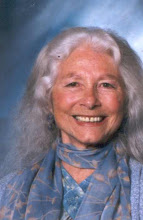

.jpg)
(c.) Shirley, Ann, and me, Christmas 1954 . (top.) "I know my rights." (bottom) "Who are all those others?" From "The Lonely Ones" © William Steig, 1942
One day a year was designated “Meet Henry North Day.” He was the President of Met Life. Each department was allotted a quarter of an hour to say "hello" and shake hands with the big guy. At nine-forty five, Katie gathered us together. All I could think of was I’d miss coffee break and a smoke. We trooped on to the elevators and rode down to Mr. North’s suite. A slender man in the requisite dark, three-piece suit officiously ushered us into Mr. North's thickly carpeted office, furnished in heavy mahogany, upholstered chairs, and drapes. Katie lined us up in a curve, just inside the door.
Henry North, in a blue-black, pin-striped suit, maroon and navy striped tie, and white shirt, heaved himself up from behind a desk the size of the deck of an aircraft carrier, and shuffled towards us in shiny, black wing-tips. He resembled all the caricatures I had ever seen depicting corporate “fat cats": literally fat, and bald, with white hair, a pink face, rimless glasses on a little pug nose. Starting at the door, he moved along the line, exuding an aura of the incredibly rich; he shook everyone’s hand with a big, pink, fleshy one. Speaking softly, almost shyly, he surprised me by greeting me and the rest of us by name. (Since then, I have been aware that a company's topmost men and women have the ability to know the names of every employee from file clerk on up - - an ability not shared by middle-management.) As we filed out the door, on the way back to our department, another group waited outside. This would go on all day. Though it meant doubling up with another department, Katie let us have our break anyway, which put the cafeteria workers in a tiff.
Katie palled around with Anita, a fluffy-haired brunette, about the same height as she, but thinner. Anita looked like Ida Lupino, though not as worldly. She wore form-fitting suits with peplum jackets. Her husband drove a bread truck. She was very upset when the teamsters went on strike. We were too because stores ran out of bread and other kinds of food. We liked Anita, she was friendly and seemed to sympathize with us about our jobs where Katie came off as remote. Or, maybe we liked Anita because she wasn't our boss. One lunch break, Katie deigned to eat with us. Somehow the conversation turned to opera. I mentioned that my Dad could sing all the tenor arias. “My mother and father’s favorite singers,” I bragged, “are Jan Peerce (I pronounced “Jan” with the “J” like jam) and Lili Pons.” She threw back her bleached-blond head , looked up at the ceiling, and said, “Oh, yes, Jan Peerce.” She pronounced “Jan” like “yawn.” Everyone at the table shot me side-ways looks. “Oh,” I said, “that’s how you pronounce it. I didn’t know. My parents always pronounced it ‘Jan’.” Then she launched into the story of how she met her husband: She was coming off a boat from Sweden, knew no English. He was standing on the dock, waiting for an arrival from the same ship. Their eyes met and that was that. Two weeks later they eloped. “How romantic,” one of us said. We all lapsed into silence and bent to our veal paprika. Katie dabbed her lips, excused herself, pushed back her chair, and left. I swore I saw tears behind her glasses.
To increase my job skills (and prove to myself I could better my high school score of -6wpm), I signed up for a typing class at night and, to create a balance, one on still-life drawing. Harry started complaining that I wasn't paying him enough attention when I was doing art homework in the evenings and weekends, so he began an affair with a woman from his office. I left him and went to live temporarily with Shirley who shared an apartment on Pine Street with her friend Ann, until Harry and I could sort things out. A few months later, Harry’s paramour dumped him and we got back together. We moved to a small, studio apartment on Fulton near 24th Avenue, across from Golden Gate Park (a made-over garage, really, with blue windows; you can still see it from the bus). Then he volunteered for the army. He wanted to join, he said, to avoid being drafted in case there was another war. While he was at boot camp, I discovered two things: One - - that a hand-written paragraph in a notebook that he said was his - - which I thought was incredible - - he had plagiarized from a Ray Bradbury short story. Two - -I didn’t love him anymore, I pitied him; when love turns to pity, it’s over. On a visit to my Mom's in Portland, I met another man, Ed, who was from the Bay area, too. We met up when we returned and I left Met Life. Seven years would pass before I would work a full-time job, except for that of wife and mother.
Chapter Five: Harry’s parents arrange to have our marriage annulled. As a mother of two - an infant and a toddler - - with Ed, I work evenings at movie theatres. At one, my boss - -a dead ringer for the bad witch in “The Wizard of Oz” - - fires me for waltzing in the lobby with the carpet sweeper to a film score.
